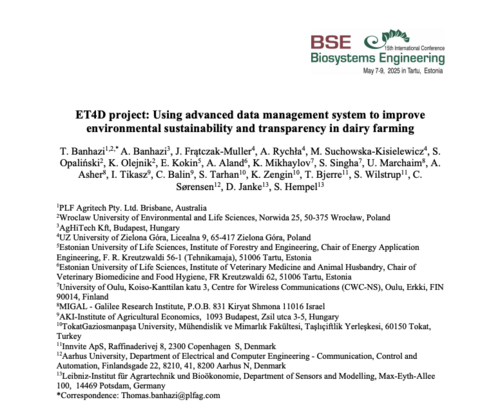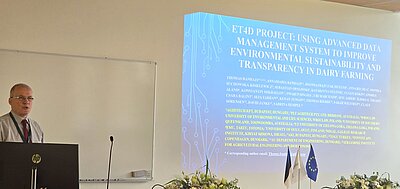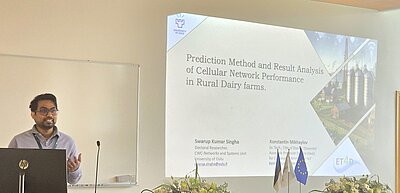Presenting ET4D findings in Tartu, Estonia

The EU ET4D project focuses on better use of data to improve animal welfare and environmental management of dairy farming.
ET4D has seized the opportunity to share some of the exciting results from the project at the Biosystem Engineering conference in Tartu, Estonia.
Prof. Thomas Banhazi from one of the Hungary based partners in ET4D, (Aghitech) presented findings on how improved data management and usability can support more sustainable dairy farming practices. AghiTech supports smart livestock production to help farmers and improve living conditions of animals and has expanded with the new company InnoTech Vision in Denmark
Representing ET4D were also the Finnish partners from University of Oulu, with Swarup Kumar Singha and Dr. Konstantin Mikhaylov sharing key findings related to cellular network performance in rural areas – an important step in addressing connectivity barriers that limit digital adoption on dairy farms.
A publication from the conference is made available online with a contribution from the ET4D partners. You can read the Book of Abstract from the conference here.
The Biosystems Engineering conference was held at the Institute of Forestry and Engineering, Estonian University of Life Sciences, between the 7th and 9th of May 2025.


